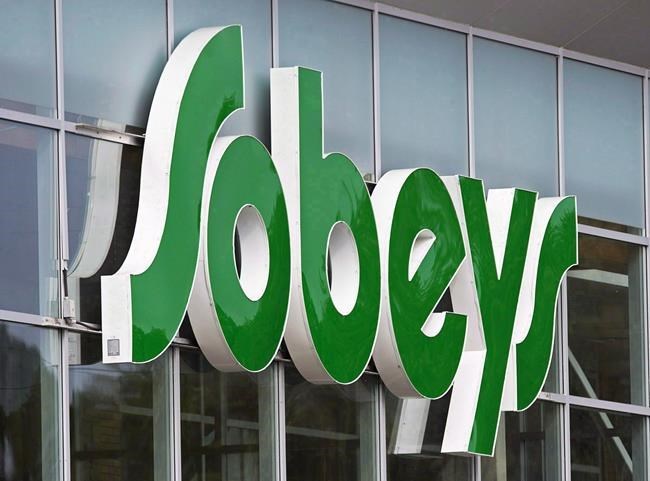Canada's second-largest grocery retailer is reinstating a lockdown bonus for workers in areas with renewed stay-at-home orders, yet it's unclear whether competitors will follow suit.
Sobeys Inc. said Monday the pay bump is "the right thing to do."
"When regions and cities enter government-mandated lockdowns that close all non-essential retail, we continue to live up to our commitments and implement our lockdown bonus," the company said in an emailed statement.
Metro Inc. and Walmart Canada declined to comment on whether they planned to offer a similar bonus to employees in lockdown areas. Loblaw Companies Ltd. did not immediately respond to a request for comment.
Ontario supermarket chain Longo's, which sold a majority stake of its business to Sobeys parent company Empire Company Ltd. last month, said on Twitter last week it would be providing permanent front-line employees with an added $2-an-hour for four weeks, the length of the provincial stay-at-home order.
Costco Wholesale Canada Ltd. offered a $2-an-hour pandemic premium to all front-line hourly employees until March 1, when it replaced the temporary bonus with a permanent $1-an-hour salary increase, said Martin Groleau, vice-president of membership and marketing.
The change increased the starting salary to $16 an hour, up from $15, with the average hourly Costco employee earning $23.71 an hour, he said.
During the first wave of the pandemic last spring, many front-line grocery workers received so-called hero pay.
The pay premiums were intended to recognize the risks essential workers faced working with the public and the additional workload at busy supermarkets as people stockpiled groceries.
It also served to incentivize employees to go into work, said Raji Jayaraman, associate professor in the Munk School of Global Affairs & Public Policy at the University of Toronto.
"There's the efficiency rationale to offer hazard pay as a strategic incentive to get them to show up, to get them to work, to be efficient and to keep morale up," she said.
"The second rationale is just about fairness. Grocery stores have done incredibly well during the pandemic ... and some workers are barely making ends meet."
As the number of COVID-19 infections dropped and stay-at-home orders were lifted, most companies phased out hazard pay last June.
Yet grocery store workers continued going in to work, assuaging fears that employees might turn to the Canada Emergency Response Benefit rather than report to work, Jayaraman said.
"If I'm a sort of profit maximizing hard-nosed rational company, I'd see that I didn't need that hazard pay to get my workers to show up," she said. "In other words, my profits can be higher."
Now, as a third wave of the pandemic prompts renewed lockdowns in parts of the countries, its unclear whether all front-line grocery workers will see a bump in pay.
The changes at Sobeys affect workers in locations under stay-at-home orders, which does not include all its stores.
Sobeys said its bonus is a temporary program that rewards employees for the amount of time they work during the lockdown period.
The company said the more an employee works during the government-mandated lockdown the more they earn, ranging from $10 to $100 more a week.
For example, an employee that works a 40-hour work week would earn a $100 bonus that week.
The company said the bonus is being paid to front-line workers at Sobeys, Foodland, FreshCo, Farm Boy, Voila by Sobeys, retail support centre employees and certain IGA locations in locked down regions of Quebec.
Anil Verma, professor emeritus at the University of Toronto's Rotman School of Management, said the pandemic has revealed how essential grocery retail is.
"Food is fundamental," he said. "We have to ask as a society how we are going to ensure that essential services are in place in the case of another crisis, and workers are key.
"Retailers operate on small margins but maybe we need an industry-wide minimum wage to create stability through higher wages."
This report by The Canadian Press was first published April 12, 2021.
Companies in this story: (TSX:EMP.A)
Brett Bundale, The Canadian Press


